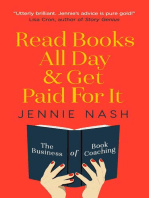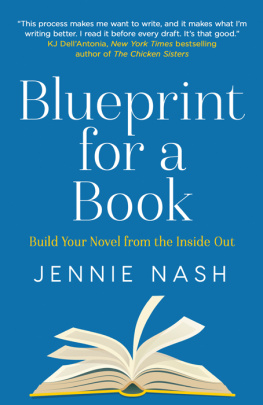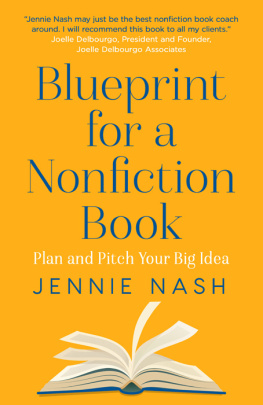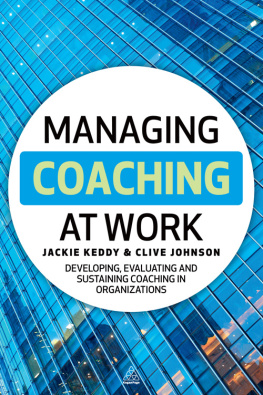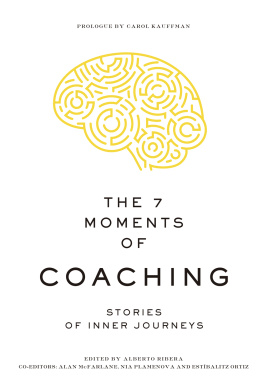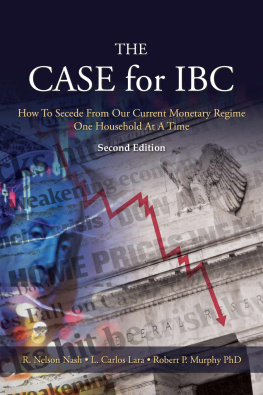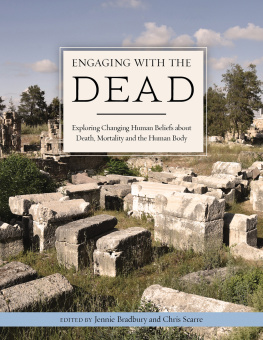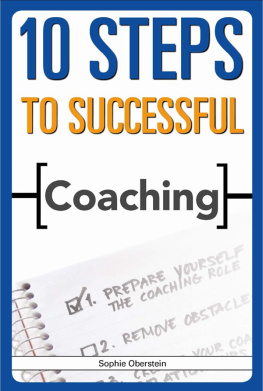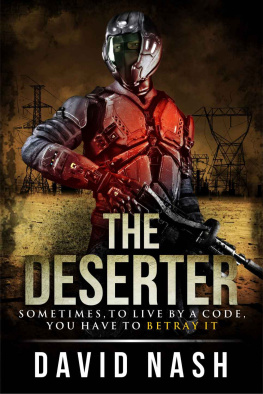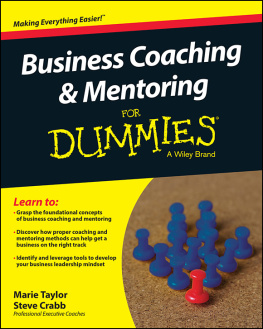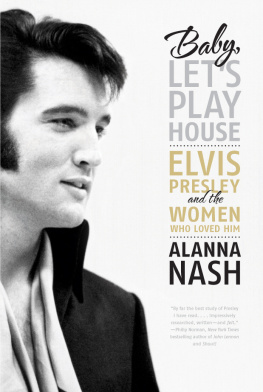Jennie Nash - Read Books All Day and Get Paid For It: The Business of Book Coaching
Here you can read online Jennie Nash - Read Books All Day and Get Paid For It: The Business of Book Coaching full text of the book (entire story) in english for free. Download pdf and epub, get meaning, cover and reviews about this ebook. genre: Business. Description of the work, (preface) as well as reviews are available. Best literature library LitArk.com created for fans of good reading and offers a wide selection of genres:
Romance novel
Science fiction
Adventure
Detective
Science
History
Home and family
Prose
Art
Politics
Computer
Non-fiction
Religion
Business
Children
Humor
Choose a favorite category and find really read worthwhile books. Enjoy immersion in the world of imagination, feel the emotions of the characters or learn something new for yourself, make an fascinating discovery.
- Book:Read Books All Day and Get Paid For It: The Business of Book Coaching
- Author:
- Genre:
- Rating:3 / 5
- Favourites:Add to favourites
- Your mark:
- 60
- 1
- 2
- 3
- 4
- 5
Read Books All Day and Get Paid For It: The Business of Book Coaching: summary, description and annotation
We offer to read an annotation, description, summary or preface (depends on what the author of the book "Read Books All Day and Get Paid For It: The Business of Book Coaching" wrote himself). If you haven't found the necessary information about the book — write in the comments, we will try to find it.
Jennie Nash: author's other books
Who wrote Read Books All Day and Get Paid For It: The Business of Book Coaching? Find out the surname, the name of the author of the book and a list of all author's works by series.
Read Books All Day and Get Paid For It: The Business of Book Coaching — read online for free the complete book (whole text) full work
Below is the text of the book, divided by pages. System saving the place of the last page read, allows you to conveniently read the book "Read Books All Day and Get Paid For It: The Business of Book Coaching" online for free, without having to search again every time where you left off. Put a bookmark, and you can go to the page where you finished reading at any time.
Font size:
Interval:
Bookmark:
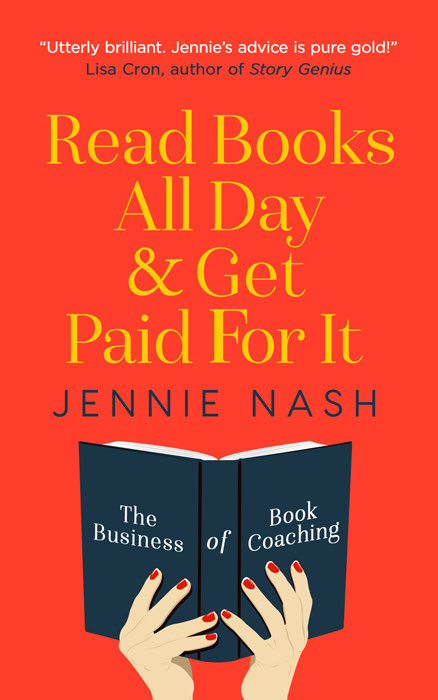
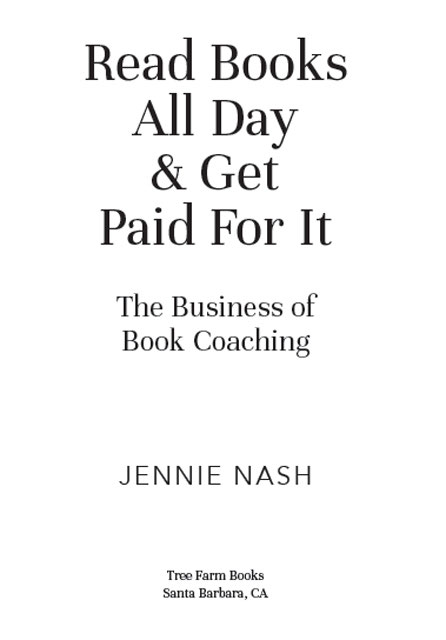
Read Books All Day & Get Paid For It:
The Business of Book Coaching
Copyright 2019 by Jennie Nash
All rights reserved. This book or any portion thereof may not be reproduced or used in any manner whatsoever without the express written permission of the publisher except for the use of brief quotations in a book review.
Tree Farm Books
Santa Barbara, CA
www.jennienash.com
Printed in the United States of America
Cover designer: Stuart Bache
Designer: Carla Green
ISBN paperback 978-1-7332511-0-5
ISBN ebook 978-1-7332511-1-2
Note #1: This is a book about making money as a book coach. I am a fan of making money, and I personally have made a lot of money as a book coach, but I would be remiss if I didnt make a strong plea for doing this work with integrity. In addition to making money, your goal should be to serve writersto help them improve their craft, overcome their doubts, finish the books they start, and connect with readers. Our industry does not need any more people preying on the desperation of writers, offering get-rich-quick schemes, or write-an-instant-bestseller promises.
Note #2: I recommend a lot of books in this pages. It is, after all, a book about books! Links to all of these books, and many other resources, can be found on a list at jennienash.com/readbooksallday.
Note #3: In a few places in the text, I refer to Author Accelerators Book Coach Training and Certification Program. This is an intensive and rigorous program I developed to teach people the actual work of book coaching. You can learn more about this program, as well as the comprehensive master class based on this book, at jennienash.com/readbooksallday.

The first book coach I ever had was my college roommate, Bridget. Fate put us together in a tiny room in a remote freshman dormme, a tennis player/English major from Southern California, and she, a cheerleader/political science major from Maineand for most of the rest of college, we never lived more than a few steps apart. Senior year, I hatched a scheme to write a series of linked narrative nonfiction pieces as an honors thesis. The topic was friendshipour friendship. I had to make sure Bridget was OK about my writing about everything I wanted to write about, so I would turn in my typewritten drafts to her long before my advisor ever saw them. She would respond and react to them, reflect back to me what was working and what wasnt, explain when I had gone too far in sharing a personal detail about her life, help me figure out a way around the hole when I took it out, ask me where the pages were when the pages werent getting written, and cheer me on as the stack of finished pages grew.
She was an editor, coach, critic, trainer, judge, mirror, cheerleader, fan. She helped me do my best work and helped me become the kind of writer who sold her first book at the age of twenty-five. She read every page I wrote, even after I had an agent, even after I had an editor at a Big 5 publishing house.
I often use an exercise in my writing classes that I call the Universe of Support. It asks writers to make a target with two concentric circles. This gives them three spaces: an inner circle, middle circle, and exterior circle. I then ask the writers to place friends and family members in this universe according to exactly how much support each member gives to their writing. The only names that can go in the inner circle are the names of people who support the writers work 100%.
What does 100% look like?
It looks like Bridget.
It looks like the boyfriend of one of my clients who was writing a moving memoir about being a gay phone-sex operator. After Id been working with my client for about three months, his boyfriend called me. I dont know what he is writing about or what you are doing to help, he said, but I have never seen him so happy. I want to buy your coaching for him for six more months.
Sometimes people put their dogs in the inner circle.
Sometimes they put their dead mothers.
Sometimes they have no one to put in that sacred space, which is a tough realization, but also a good one because they can keep their writing away from the people who dont support it, and they can go out and find what they need: someone to support their writing life. Someone who wants them to succeed and helps them do their best work.
This is what a book coach does. Only instead of doing it for love, we do it as a professional in exchange for money.
Now it may seem odd that a writer would pay for this kind of support, when they can just get an awesome friend like Bridgetand that is, in fact, the subject of this book: How to be the person who gets paid to be like Bridget.
Or, as Ed Catmull says in Creativity, Inc., how to wrestle with the competingbut necessarily complementaryforces of art and commerce.
RECOMMENDED READING
If you havent already read Creativity, Inc., do it. This is one of my top recommendations for learning what it is like to systematize creativityto develop a strategy around helping people do their best creative work. Each time I return to these pages, I learn somethinghow the Braintrust really works, what the rules for giving good feedback are, how not to crush the creative spirit, how a story develops over time in circular ways, and so much more.
The fact of the matter is that its relatively easy for writers to get free help with their writing. They can go to a writers meet-up, or a workshop, or a conference and make writer friends, or they can ask their college roommates, or their sisters, or their neighbor who is a seventh grade English teacher to read their pages.
But here is the terrible truth: Free help is not always good help. It can be, on occasion, and writers who have found a smart, supportive, fair-minded, tough, and kind critique partner or writers group should hold on as tight as they can.
But free help is, in fact, often damaging help.
In my work as a book coach and as the CEO of Author Accelerator, a book-coaching company, I see this damage every day.
I see people who are mistakenly convinced that their work is pitch perfect and ready for publication because their writing friends told them for years that it was soooo good.
I see people whose pages have been batted around by their writing group to the point where their work reads as if it has been written by a committee.
I see people who keep giving their work to family members and friends who are way out of the center of their universe of support, and who give such mean-spirited and judgmental critiques that the writers become paralyzed with shame or fear or both.
People are generally too embarrassed to talk about their own experiences getting burned in this wayit feels so personalbut I hear a lot of writers telling harrowing stories about writer friends. I recently received this note from a writer who heard me speak about writing group damage:
I just finished watching you [on a webinar] and what you said about writers groups has always resonated with me--Ive always avoided them because I think theyre awful. But this last week, I started helping one of my writer buddies who went through a really awful experience last year with her critique group. It was horrible. It makes me so angry how mean people can be. She didnt tell me this until last week when I asked her how her writing was going and she said she hadnt written in a year. This is a friend with a whole finished first draft. And this experience crushed her. She stopped writing, revising, dreaming.
Next pageFont size:
Interval:
Bookmark:
Similar books «Read Books All Day and Get Paid For It: The Business of Book Coaching»
Look at similar books to Read Books All Day and Get Paid For It: The Business of Book Coaching. We have selected literature similar in name and meaning in the hope of providing readers with more options to find new, interesting, not yet read works.
Discussion, reviews of the book Read Books All Day and Get Paid For It: The Business of Book Coaching and just readers' own opinions. Leave your comments, write what you think about the work, its meaning or the main characters. Specify what exactly you liked and what you didn't like, and why you think so.

